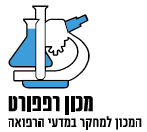
Dr.Efrat Bron-Harlev
Women Generating Change for our children and their future
Dr. Efrat Bron-Harlev, mother of four sons, specialist in pediatrics, pediatric intensive care, and medical administration. She graduated from Ben-Gurion University of the Negev's Medical School and holds a Master's degree in Public Administration from Harvard University. Efrat has been CEO of Schneider Children's Medical Center, a member of Clalit Health Services, since 2020.
Throughout her career, Efrat has spearheaded significant advancements in pediatric care within Israel. She has dedicated her prime years to public service, striving to enhance healthcare services and making advanced medical care accessible to everyone. The opening of the Glass Building at Schneider Children's reflects her commitment to promoting high-quality pediatric services. This initiative aligns with the hospital's founding vision of unwavering dedication to improving children's health and quality of life, recognizing that a child is not a small adult. Efrat leads a holistic approach to pediatric healthcare, emphasizing the importance of understanding and speaking the "language of children" to provide "above and beyond" care.
She places significant emphasis on research and innovation, leading to the establishment of Israel's only dedicated pediatric innovation and research center, and one of the few worldwide. Just as Schneider Children's transformed pediatric medicine in Israel upon its opening, Efrat aims to spearhead a progressive paradigm in the coming years. This vision entrusts the medical team not only with providing the most advanced pediatric treatments but also ensuring that today's children become the healthy adults of tomorrow.
Efrat proactively initiated the establishment of the Returnees Department, the department that treated most of the children that returned from captivity in November 2023; 19 children, 6 mothers, and one grandmother. Schneider Children's teams delved into all available information on the return of children from captivity, despite the lack of medical literature on the subject, thus actually writing the textbook on children returning from captivity. Efrat transformed the hospital from a place solely associated with treating illnesses to one symbolizing security and hope. Many families expressed that their stay in the department was their first step toward restoring faith in humanity.



